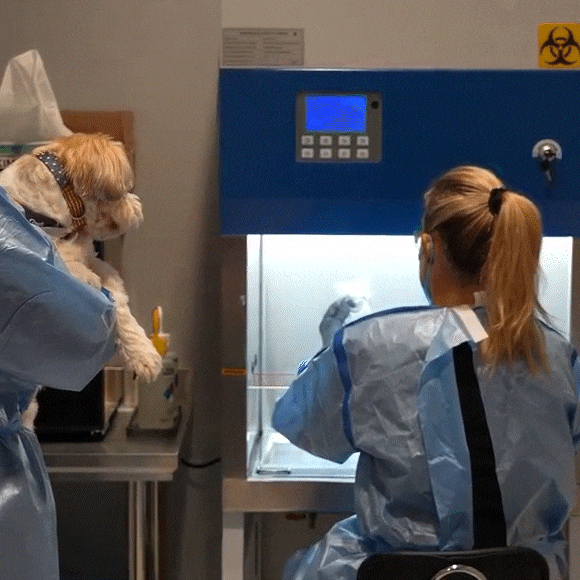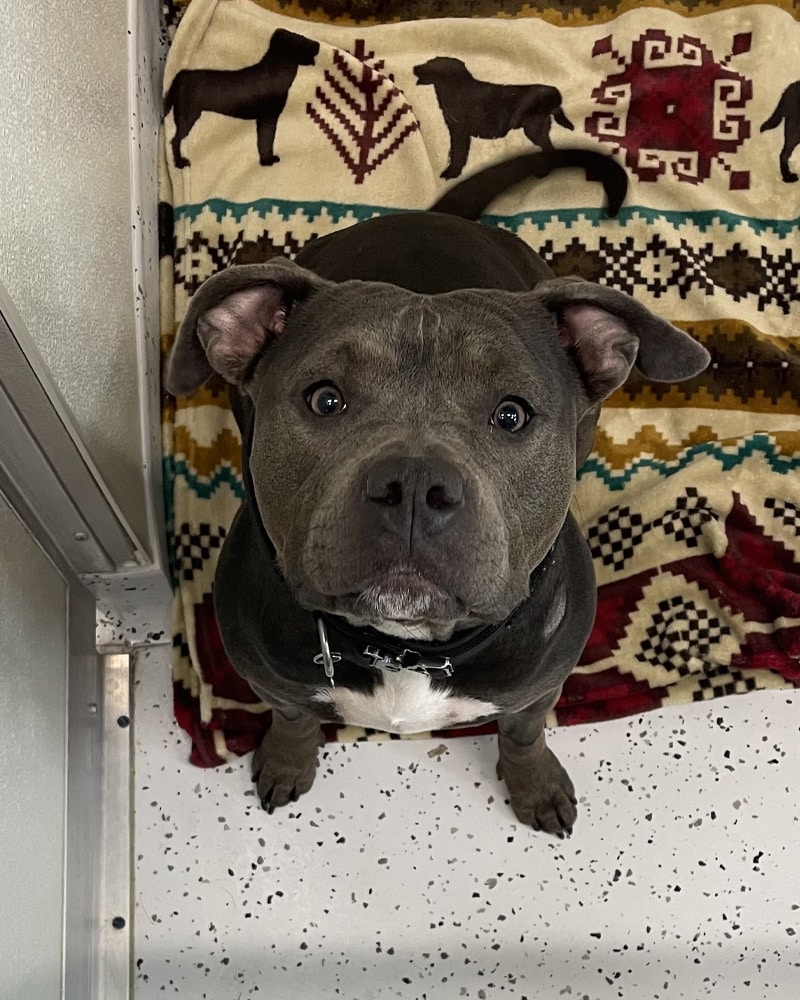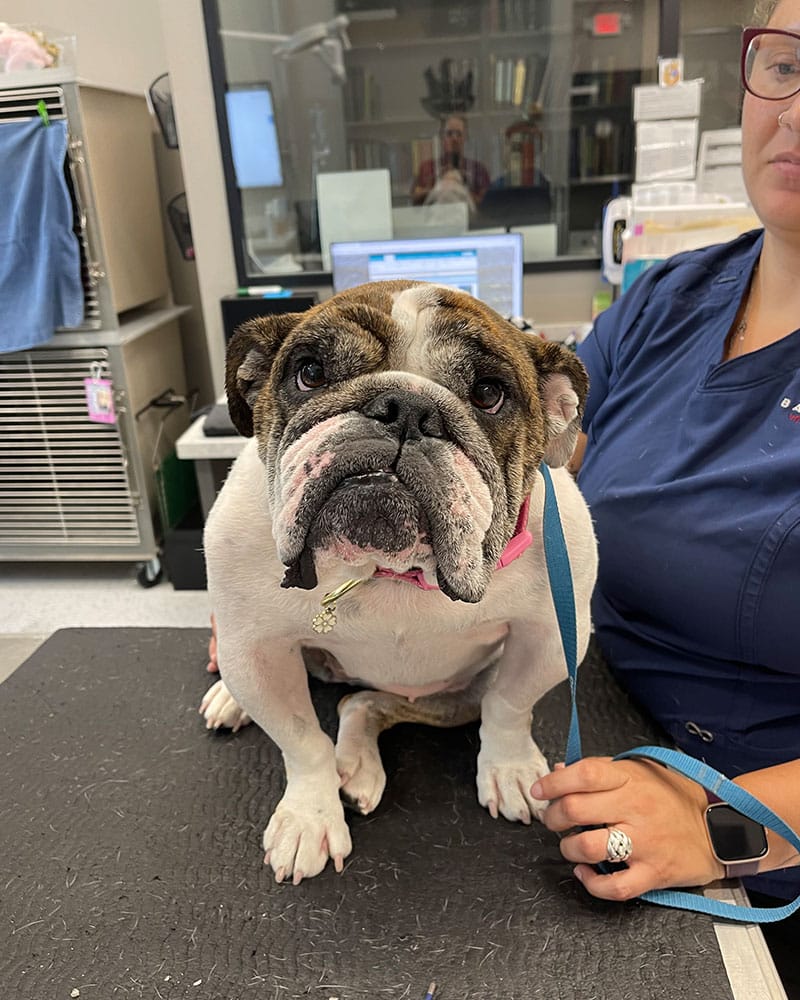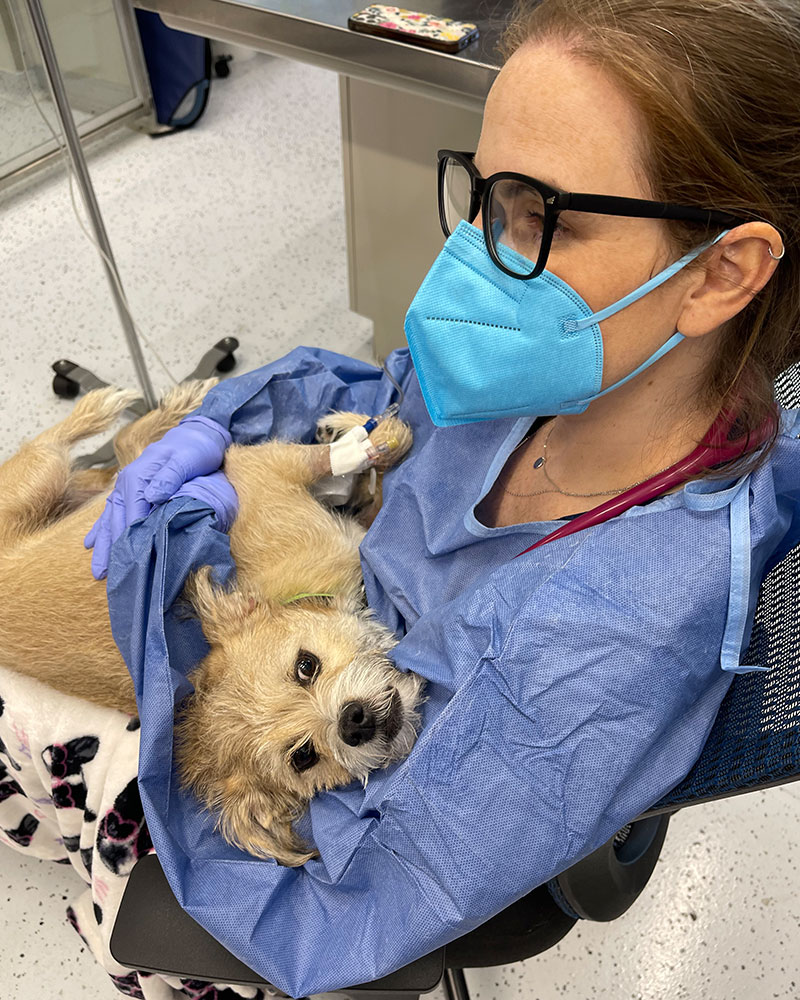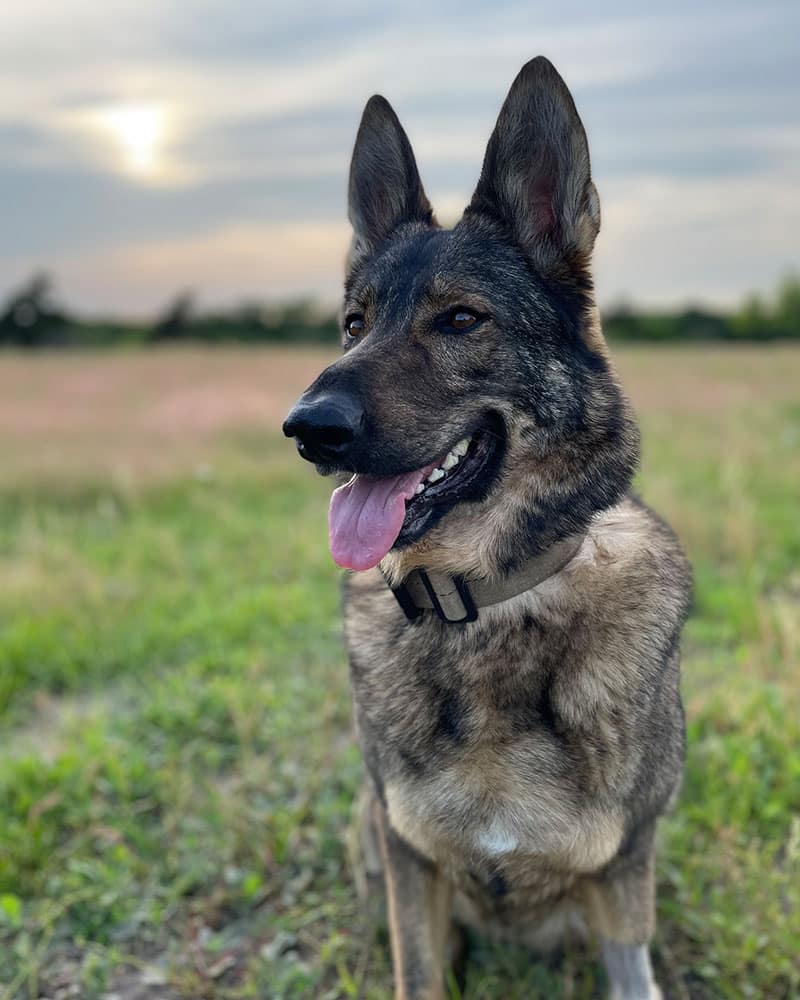Cancer Staging and Treatment for Pets
Cancer can be a terrifying diagnosis, but in our cats and dogs, many cancers have a good prognosis with standard treatment while achieving a good quality of life. In contrast to human oncology, our veterinary oncology patients tend to tolerate chemotherapy much, much better. Our objective is to treat your pet, while ensuring your pet’s life is worth living. If a pet experiences a side effect, we have medications that can help minimize these effects.
We partner with you to continuously monitor your pet’s quality of life and adjust treatment plans as needed.
If you are concerned that your pet may have cancer, please reach out to us by phone.

Diagnosing and Staging Cancer
Diagnostics will be recommended to identify and stage cancer. Staging is performed to determine if the tumor has metastasized or spread from the primary tumor site. Diagnosing and staging may include tests such as:
- Lymph node evaluation
- Radiographs
- Ultrasound and ultrasound-guided needle aspirates
- Fine needle aspirates with cytology
- Specialized biopsy tests
- Bone marrow aspirates/biopsies
- Blood and urine testing
- Special testing at outside laboratories.
Treatment
There are many types of pet cancer, and the behavior and prognosis of each is unique to each patient. Your veterinarian will help you decide which course of action is best for your dog or cat. Depending on the type of cancer your pet has been diagnosed with, there may be several options in terms of treatment.
- Surgery, including tumor removal or amputations (with referral for complex cases)
- Chemotherapy (oral, intravenous, intralesional), including Stelfonta for qualifying mast cell tumors. A USP 800–compliant chemotherapy room with a biological safety cabinet is utilized for safe preparation of chemotherapy drugs
- Identification of candidates for radiation therapy, with continued care following treatment at an outside facility
- Complementary medicine, including Chinese herbal therapy (Yunnan Baiyao), supplements, and nutrition
- End-of-life support, combining palliative care, pain management, quality-of-life assessment, and caregiver support

Dr. Lisa Reeve & Bruiser
Dr. Lisa Reeve has a strong background in human oncology and experience with chemotherapy protocols for cats and dogs. Her passion was shaped by her first patient, a Goldendoodle puppy named Bruiser, diagnosed with a severe bleeding disorder.
Bruiser was brought into the clinic as an 8-week-old puppy, suffering from a life-threatening condition that required an immediate blood transfusion. Dr. Reeve ultimately adopted him, and he became a beloved member of both her family and the clinic’s. After extensive testing—including at Texas A&M Small Animal Clinic—Bruiser was diagnosed with severe immune-mediated thrombocytopenia (destruction of his platelets).
Over nine months, Bruiser was treated with immunosuppressive agents, vincristine (a chemotherapy drug), blood and platelet transfusions, and a splenectomy. He was a happy, playful puppy who adored running in the backyard and spending time with his buddy Jax in the jasmine—though his life was unfortunately short. He passed away just shy of his first birthday, after a brave fight.

